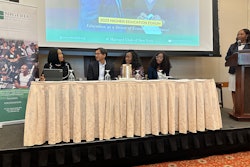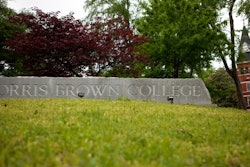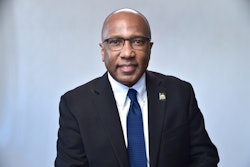Foreign-born voters could have a significant impact on next month’s mid-term elections, according to a study from the University of Southern California’s Tomas Rivera Policy Institute.
A shift of 3 percent in the preferences of foreign-born voters could be enough to sway the vote in close elections, the study finds. The possibility is especially strong in states with large foreign-born populations such as California, Florida and New York. Researchers at the institute analyzed U.S. Census data and data from the 2004 presidential election to form their conclusions. For example, 12.4 million votes were cast in California during the 2004 elections, of which 1.8 million were from foreign-born voters. A 3.5 percent change in preferences among those voters would have swung the overall vote 1 percent.
“Few realize how large the foreign-born vote has become in selected states,” says Dr. Harry P. Pachon, president of the institute and a professor of public policy at USC. “In six states alone, they number over four million voters.”
The study specifically examines the impact of Hispanic voters in densely populated states like California and Florida. Judging from electoral results from 2004, the study concludes that a 7 percent to 9 percent shift in the preferences of Hispanic voters could change the outcome of the coming mid-term elections.
In Illinois, New York, New Jersey and Texas, it would take a significant percentage shift (14 percent to 35 percent) by Hispanic voters to create a 1 percent shift in the overall outcome.
The institute says there is a potential for the foreign-born vote to grow and to become even more significant over time, given the large number of legal permanent residents who have not yet attained citizenship.
According to a Pew Hispanic Center report conducted earlier this year, Hispanics accounted for half of the population growth in the United States between the elections of 2000 and 2004, but only 10 percent of the increase in the total votes cast.
“This gap between the very substantial growth of the Hispanic population and much more modest growth in Hispanic electoral clout has been developing for a generation but has widened considerably in recent years,” says the report.
Dr. Rodolfo O. de la Garza, vice president of research at TRPI and professor of political science at Columbia University, says the number of foreign-born voters has added to the Hispanic vote but has also created a dilemma.
“The growth in the community is in spite of itself … and the immigration debate has not motivated them to vote,” he says. “So, relatively few foreign-born voters would be impacted as the study would suggest.”
— Diverse staff reports
|
Reader comments on this story: |
|
There are currently no reader comments on this story. |
© Copyright 2005 by DiverseEducation.com





















